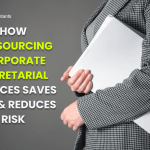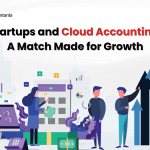ACRA is Singapore’s national regulator of corporate entities and public accountants. Its responsibilities include managing the registration, compliance, and regulation of corporations, partnerships, sole proprietorships, and limited liability partnerships (LLPs).
Hence, the Accounting and Corporate Regulatory Authority of Singapore (ACRA) is in charge of registering corporate entities in Singapore. The Registrar of Companies, or ACRA, refers to the same body in Singapore.
In this article, we will discuss what businesses should know in 2024.
Business Registration
Every firm operating in Singapore must register with ACRA. You must choose your business structure and register using ACRA’s online portal Bizfile+.
Tasks to be accomplished:
-Set up a business in Singapore.
-Register a foreign company’s branch office in Singapore.
-Every company should file an annual return every year.
-Any changes to the firm should be disclosed to accounting and corporate regulatory agencies, -including the address, company structure, and contact information for executives and members.
Who Should Register with ACRA?
Every company doing business in Singapore has to file with the ACRA. ACRA registration is required for all businesses, regardless of size or sector. When registering, you must choose your business model and follow the ACRA guidelines.
To operate legally in Singapore, firms and other entities must register with ACRA on time and meet all applicable regulatory criteria. Furthermore, particular sectors or activities may be subject to specific licensing or regulatory requirements imposed by other government agencies, so enterprises should confirm their duties with the appropriate authorities.
ACRA Corporate Governance
ACRA is in charge of ensuring that Singapore’s Corporate Governance Code is followed. The Code outlines the concepts and criteria for excellent corporate governance procedures that firms listed on the Singapore Exchange (SGX) are expected to follow.
While compliance with the Code is optional for non-listed corporations, ACRA urges all entities to adopt its principles as best practices.
Financial Reporting Guidelines
ACRA creates and maintains accounting rules for Singaporean enterprises. These standards, such as Singapore Financial Reporting Standards (SFRS), guarantee that financial reporting is consistent and transparent.
Furthermore, ACRA works to ensure that SFRS is consistent with international accounting standards, particularly IFRS released by the International Accounting Standards Board (IASB). This alignment makes financial statements more comparable across borders and increases the credibility of Singapore’s financial reporting framework.
Engagement and Education
ACRA communicates with businesses using a variety of platforms, including seminars, workshops, and online tools. It advises and assists firms on regulatory issues, compliance standards, and best practices. ACRA also conducts outreach to inform stakeholders about its position and operations.
Furthermore, ACRA also produces educational materials, including as newsletters, brochures, and guides, to communicate information about regulatory changes, compliance requirements, and best practices. These publications are intended to be user-friendly and accessible to a broad audience, giving practical insights and ideas to help organizations improve their compliance efforts.
In Summary
ACRA is at the vanguard of Singapore’s business regulatory framework, ensuring the integrity and transparency of the country’s corporate landscape.
Understanding ACRA’s goal, functions, and important position in the business ecosystem enables entrepreneurs and enterprises to confidently navigate the Singaporean market and thrive in the competitive landscape of 2024 and beyond.
Contact EBOS Cloud Accountants right once to review your business operations and ensure compliance with ACRA rules. From registration to filing annual returns, make sure you meet all of your obligations on time.







